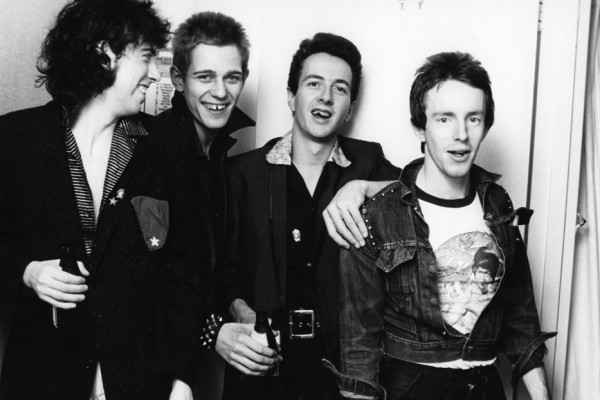
And as The Clash week continues here at Punknews, we've got a little bit of an editorial. New staff writer Trevor Byrne-Smith decided to expound on what the Clash mean to him. Check out the piece below.
Beyond Three Chords: What the Clash Means to Me
Trevor Byrne-Smith
I admit, my initial discovery of the Clash was not very punk rock. I had a friend in junior high named Billy and he and I bonded over the fact that we were the only ones we knew who liked the song “Should I Stay or Should I Go†that the local alternative rock radio station played on occasion, particularly during their “Retro Lunch.“ So for a party I threw in 8th grade, I bought a copy of Combat Rock as a half-joke so we could put my stereo on karaoke mode and sing it together. I wasn’t aware at the time that I was purchasing an album from one of the most important punk bands in history.
In time, I came to be a bigger punk fan, and I heard mumblings that this band whose album I had purchased as a joke was actually pretty damn important. So I dug the album back out and was truly impressed, and while Combat Rock stands as one of the more uneven releases of The Clash’s career, it had some truly wonderful gems on it beyond the track I had purchased it for. I fell in love with “Know Your Rights,†“Car Jamming,†and “Straight to Hell.†But a question loomed in the back of my mind: How is this punk?
The next Christmas I asked for a copy of London Calling, and while I loved every single powerful, soulful, brilliantly eclectic song on what would later become my favorite album of all time, it still left that question unanswered in my mind. Little did I know that that was a question that dogged the Clash from London Calling onwards, and one that they showed an ambivalence towards at times, at some points even suggesting that they were fine with just being called a rock band.
But, as I came to become a certified punk rock nerd and learned more about the genre’s origin, its evolution, and the lasting influence of The Clash, I came to a conclusion that I will continue to defend until the day I die: London Calling, Sandinista!, and Combat Rock are not only punk albums, they are an important part of the entire genre’s DNA, and dictated what punk would become. I honestly don’t think that punk rock would have ever made it out of the 1970’s had it not been for the Clash. Not only would we not have all the any of the millions of punk bands across the world today, but in this alternative timeline you can say goodbye to all of the great genres to evolved from punk, from post-punk, to new wave, to indie rock, to the alternative rock revolution of the 1990s. It’d still just be more Elvis, Beatles, and the Rolling Stones, because The Clash gave punk rock the thing it needed the most to be able to survive: range.
This is why you will see me, in all of my album reviews, asking the question “What are you bringing to the genre of punk that I haven’t heard before?†Because the Clash challenged us to consider that question when we look at the genre. Sure, you could argue that there were already other bands experimenting with what the genre is capable of before the release of London Calling (Suicide’s 1977 self-titled debut album comes to mind), but nobody brought in such a wide range of genres in such an immediately accessible way, while keeping the revolutionary spirit of punk rock in every single song, whether it was a piano ballad, a dub jam, or an electronic new wave hit like “Rock the Casbah.â€
The Clash are the reason I love when I hear bands using other influences from outside of punk. They’re the reason why artists as diverse as Billy Bragg, The Refused, Le Tigre, and Rancid can all be called punk. The Clash taught us that punk is more than three chords in two minutes. Punk is a spirit of revolution, and a true love and passion for music. They gave us the blueprint for the survival of this entire genre. May we never forget it.